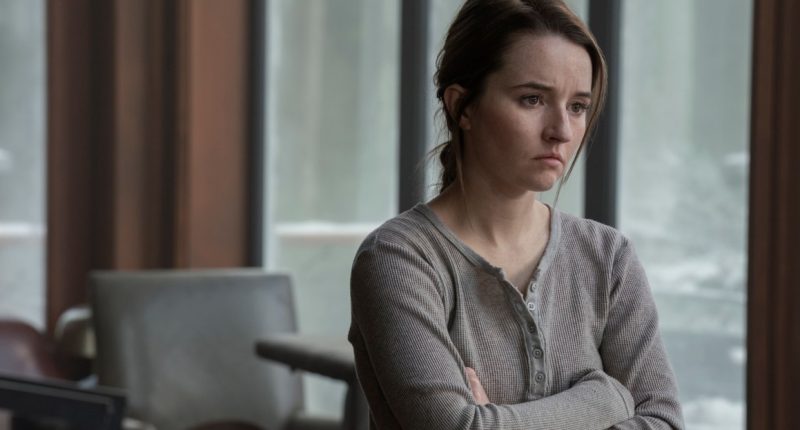Share this @internewscast.com
The Last of Us has concluded its second season, and the finale introduces a significant transformation for the series. This change mirrors a pivotal shift from the game’s storyline, altering the viewer’s perception dramatically.
This story contains spoilers for the first two seasons of The Last of Us, as well as both games.
Following the calmer tone of season 2’s second-to-last episode, which explored Joel (Pedro Pascal) and Ellie’s (Bella Ramsey) evolving relationship over many years, the finale returns to darker themes. Specifically, it focuses on Ellie’s pursuit to track down and kill Abby (Kaitlyn Dever) as revenge for Joel’s murder, which was Abby’s retaliation for her father’s death.
Even though Ellie finds herself in the midst of a chaotic Seattle warzone, dealing with a pregnant girlfriend who has been seriously injured, and after receiving a heartfelt speech from Jesse (Young Mazino) about prioritizing community welfare, Ellie remains unstoppable in her desire for vengeance. Her determination leads her to an aquarium where Abby might be, but this results in the unintended death of two of Abby’s friends, including one who is also pregnant.
This moment is pivotal in that it really drives home just how determined Ellie is, and how much violence she’s willing to create and endure in pursuit of revenge. But it’s also not the end of the episode. The last two minutes suddenly shift to Abby in a massive settlement inside of a baseball stadium. After following Ellie’s three-day-long quest, we see Abby alongside the words “Seattle: Day One.”

Image: HBO
For those who have played The Last of Us Part II, this mirrors the structure of the game. In the first half of the game, Abby is a villain to be chased, before players take control of her to see the same period of time through her eyes, turning her into a character that you can both hate and sympathize with, much as Ellie steadily becomes. According to co-showrunner Craig Mazin, one of the challenges of re-creating this moment came down to the differences between games and television. The team wanted to get a similar feeling across, even knowing that it wouldn’t hit quite as hard.
“We can’t reproduce the shock of becoming a person,” Mazin said during a press Q&A ahead of the finale. “In the games you are Joel, you are Ellie, you are Abby. When that shift happens it’s jarring because you have been someone. But here we’re watching everybody equally on a screen.” He added, “What we’re doing is honoring the notion that there’s a time period where one person experiences it one way, and another is experiencing it so wildly different, and yet they converge.”
The suggestion is that season 3 will largely follow Abby’s side of the story, something that Neil Druckmann, co-showrunner and also creative director of the games, alluded to. “Had we ended this season somewhere else, like a few moments before, I think we wouldn’t be making the right promise of what this is about,” Druckmann said. “We’re telling you that next season, one, there is just an epic nature to what’s about to happen, and two, this other story is going to be really important.”
This doesn’t mean there won’t be Ellie in season 3 — or Joel, for that matter — as the TV show has been fairly liberal with shifting moments around to better suit its own style of storytelling. So it’s very unlikely that season 3 will be solely, or even primarily, from Abby’s perspective. But learning her side of the story will be important, particularly for how it both mirrors and differs from Ellie’s perspective and makes viewers root for or against both parties.
“We understand that both Ellie and Abby are moving forward in trouble,” explained Mazin. “They are in moral trouble, because their certainty is beginning to fail them, and we can see it here with Ellie for sure. Because faced with the consequences of the thing she’s done, and the people that didn’t deserve to die dying, she’s starting to feel maybe a swing of the pendulum.”
Even still, adding in a third major character to sympathize with will mark a major shift for the show going forward, much as killing off Joel was for season 2. And Mazin believes this is a core part of the structure of the series. “This show is going to be a different show every season,” he said.







